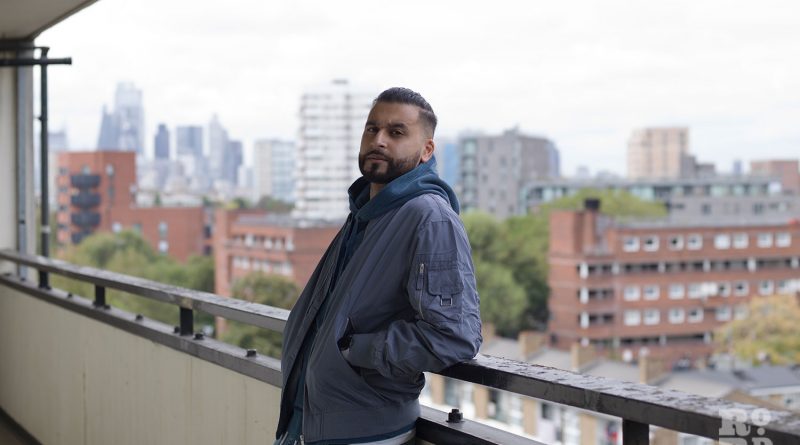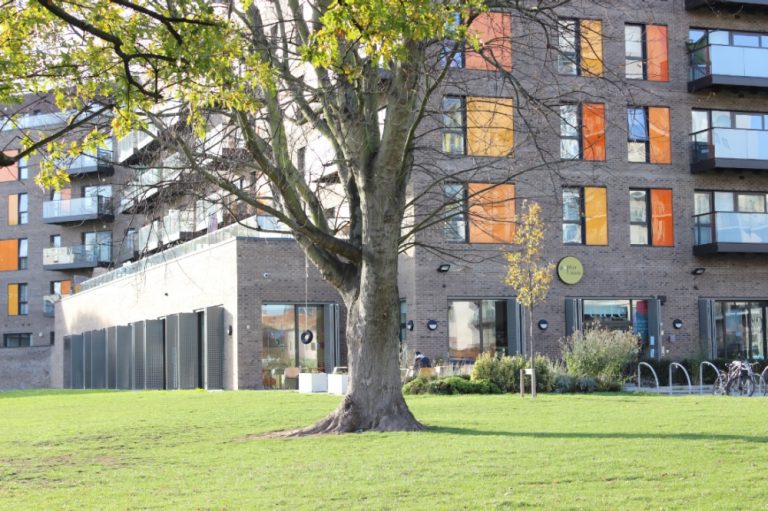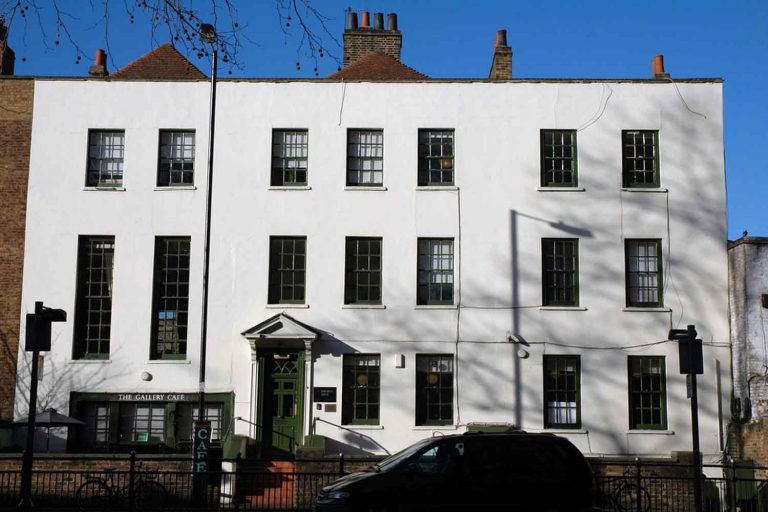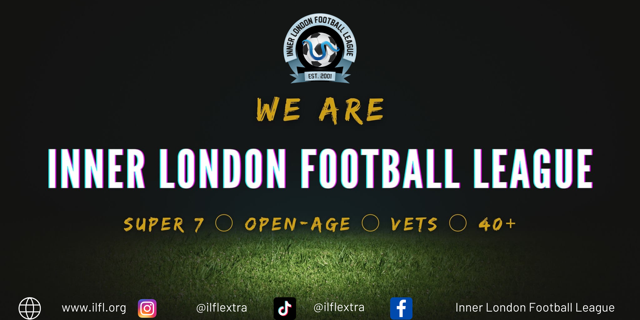‘If Only’: A new short film about gang life in Tower Hamlets by The Corner Shop Show creator
British-Bangladeshi director Islah Abdur-Rahman on grooming, drug abuse and gang violence: ‘It’s a very heavy project, but it’s also very positive’.
When Islah Abdur-Rahman was young, the film industry was not the most likely career path for a second-generation British Bangladeshi growing up in Lewisham.
Like many immigrant families in the early 2000s, Abdur-Rahman’s parents weren’t supportive of him finding a job in the creative industry, and the lack of on-screen representation of ethnic minorities only seemed to validate their doubts.
But even then, Abdur-Rahman, 32, trusted in his own convictions. At the age of 19, he was writing and producing his first web series, Mandem on the Wall, which amassed more than 2.2 million views on YouTube.
‘Each time I’ve been given an opportunity is because I’ve presented what I’m worth,’ says Abdur-Rahman, who learnt from an early age how to carve his own path in an often-lonely industry.
Talking to him on a video call, Abdur-Rahman is dressed in an ornate maroon djellaba, a style of ‘thobe’ most commonly worn in Morocco, paired with a large pair of noise-cancelling headphones.
Smiling into the camera, Abdur-Rahman talks thoughtfully and is generous with his time, understanding when I interrupt him to restart the free 40-minute video call.
Having created and directed two online TV series before the age of 24, he has good reason to trust his creative instincts, but his inner confidence also comes from a deeper faith.
‘I think we’re chosen to have an idea for a reason,’ he muses: ‘God doesn’t give you ideas to just let them be dormant in your mind. He gives you ideas for you to execute them.’
Now in his early thirties, Abdur-Rahman has been paving the way for greater representation of ethnic minorities in the film industry for nearly a decade.
If you’re British Bangladeshi and from East London, you’ll almost certainly recognise him from his 2014 coming-of-age TV comedy, The Corner Shop Show, about a South Asian son trying to fill his father’s shoes in the family business.
The series’ YouTube channel has more than 60K subscribers and was an immediate hit with young members of the Bangladeshi community who could relate to the familial expectations and pressures explored under the veil of comedy.
But behind the comedy sketches and playful on-screen demeanour, there is a deep sincerity and thoughtfulness to Abdur-Rahman who is acutely aware of the influence he holds as a director and filmmaker.
His newest docu-drama film, ‘If Only’, is based on real-life accounts of living in Tower Hamlets and was made in collaboration with Streets of Growth youth charity, which held workshops for 16 to 20-year-olds from East London to share their experiences.
The film was commissioned and funded by Tower Hamlets Homes (THH), a housing association that manages homes for Tower Hamlets Council and supports community initiatives across the borough.
It is the first non-comedy of this length written by Abdur-Rahman and will be premiered at Genesis Cinema on Friday 22 September, before being released online to educate young people about gang violence, postcode wars, drug abuse and multifarious other dangers.
‘Initially, I was a bit overwhelmed by how I would address so many issues in the space of a 30-minute film,’ says Abdur-Rahman: ‘I was praying that I was doing the stories justice and that what I was writing would help young people out there. The bigger objective of the film is that we save lives.’
The way the film turns out follows just one of many possible scenarios: Abdur-Rahman hopes it will make young people question the decisions they’re making, understand the consequences of those decisions and make the right choice.
Recalling the first table read with the cast and crew, he says: ‘There was a silence in the room and everyone was in their own bubble. We all knew it would be heavy, but we didn’t expect that … that’s when I thought: Okay, this is a powerful script.’
As well as reflecting their lived realities, the film was an opportunity for Abdur-Rahman to teach young people about the film industry and give members of ethnic minority groups the step up that he never had.
From writing the screenplay to coming on set in Tower Hamlets and learning how a film is shot, Abdur-Rahman made sure the young cast was involved in every step.
‘It’s very important for people to feel represented.’ he says: ‘When you’re making a film for young people, you need to take into consideration what they want. For every decision, I turned to the young people at Streets of Growth. To me, they were my boss.’
According to Abdur-Rahman, Top Boy was a game-changer in the TV crime genre: ‘It was the first show that used slang that I understood; seeing it grow really inspired a generation of filmmakers like me. I never thought a crime drama would be marketable like that until Top Boy paved the way,’ he says.
‘If Only’ includes a cameo appearance from Top Boy’s Ash Barba as a nod to its influence, but Abdur-Rahman’s film isn’t as dramatised as the popular Netflix series: it’s a more realistic portrayal and the protagonists are younger than in Top Boy.
Abdur-Rahman grew up in South London, but Tower Hamlets was always the heart of the British Bangladeshi community and felt like his home north of the river.
Now living in East London, you might’ve seen Abdur-Rahman cycling through Whitechapel on his second-hand Carrera road bike, waving to his fans and stopping at traffic lights for a chat.
To them, Abdur-Rahman is the amiable and witty actor from his YouTube channel, a face of success in the community who is now shining a light on the criminality that he experienced in his youth which is still seen across London today.
‘I said: the fact you’re getting cold feet is because you care. It’s a very heavy project, but it’s also a very positive project, and you’re going to thank yourself when you do it.’
Islah Abdur-Rahman
‘Growing up in Lewisham was tough, there was a lot of crime literally in front of my doorstep. I’m best known for a comedy series that I created called Three Mandem on the Wall and there really were mandem on that wall and that’s what it was based on.’
‘The crime in South London is no different from the crime in East London … at the end of the day it’s still crime, it’s still young people, and it’s still innocent lives.’
‘But to see the life of criminality inflicting your own community is the biggest difference, and naturally, you feel your heart pulling towards it because it’s your own people.’
The young cast members of ‘If Only’ range from 16 to 21 years old, working alongside older actors including Abdur-Rahman who plays the villain of the film.
Following the paths of college and school students Abs and Yasmin, the film highlights how easily grooming can happen and the methods older gang members use to prey upon the young and vulnerable.
The opening scene of the trailer sees Abdur-Rahman’s character and Abs, the male protagonist played by Hackney’s Adam Aziz, looking out over East London’s skyline from the balcony of a block of flats in Limehouse.
‘I see a lot of me in [Aziz]’ says Abdur-Rahman: ‘He’s Britsh Bangladeshi and there’s not a lot of us in the creative arts, especially on screen.
‘He’s more talented than me, but his sense of humour, and his drive and commitment to the art are so similar … I just see him as a younger me.’
When Aziz started to doubt himself before filming started, it was Abdur-Rahman who assured him to go ahead with the project: ‘I said: the fact you’re getting cold feet is because you care. It’s a very heavy project, but it’s also a very positive project, and you’re going to thank yourself when you do it.
‘And he really was glad that he did it. I think we’re both always going to remember that phone call. That was a call that I wish someone gave me when I was younger.’
Growing up, Abdur-Rahman saw film after film reproducing the damaging Hollywood storyline pitting an American government against a Muslim terrorist organisation.
‘That’s a history we all had to witness, but it doesn’t do any favours for us as a society because all it does is fuel hatred and send another community down a really dark path.’
With this in mind, Abdur-Rahman is driven to use his influence to inspire positive change: he’s all too aware of the power of films and TV to impact how society perceives things.
While he wants to be a good role model to his active community of followers, unlike other social media personalities, Abdur-Rahman isn’t chasing popularity or fame.
‘I always try and think of the two Ps,’ he says: ‘Either you do something for purpose or popularity … and if you do it for a purpose, the purpose becomes greater than you, and naturally, will become popular.
‘I always try and do something for a purpose.’
If you enjoyed reading this piece, you might like our article about key Grime figures and their roots in Roman Road, Bow E3.








